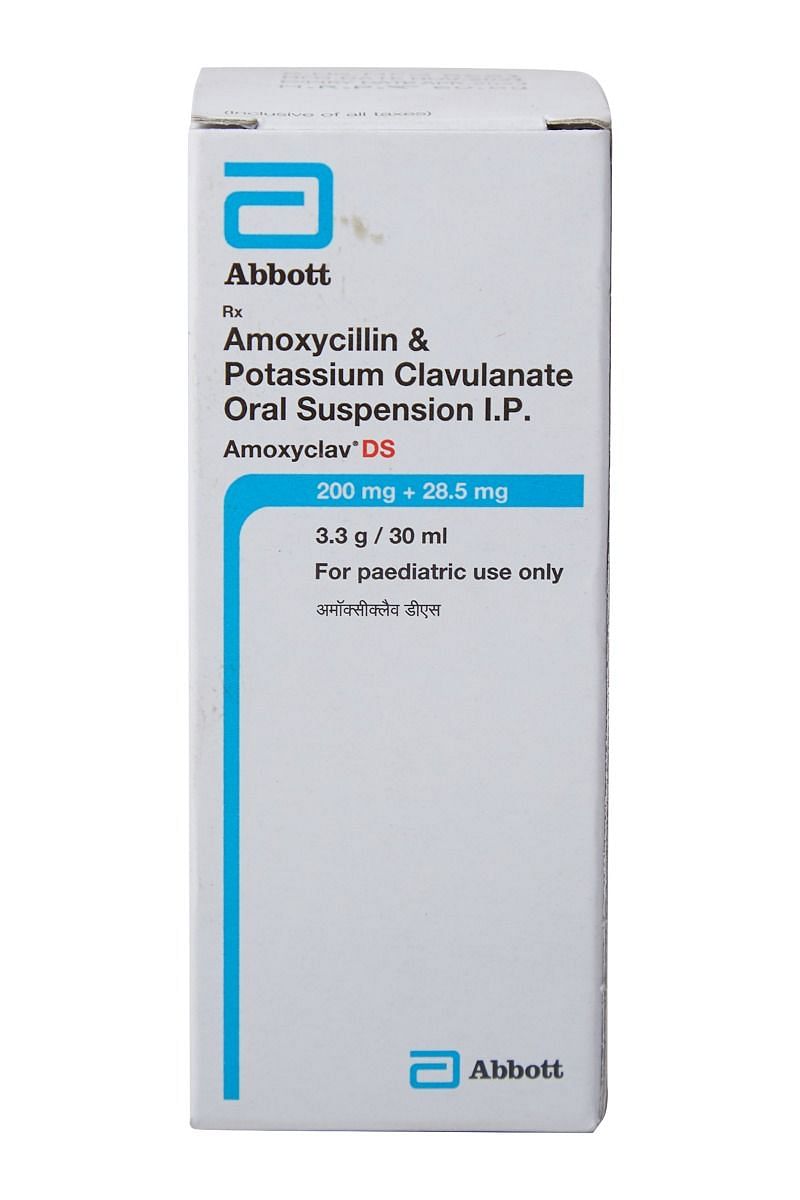
Zocmoxy Dry Syrup
Manufacturer
Biozoc INC
Salt Composition
Amoxycillin (200mg) + Clavulanic Acid (28.5mg)
Key Information
Short Description
Zocmoxy Dry Syrup is an antibiotic medicine used to treat bacterial infections in various parts of the body, including the ear, nose, throat, chest, lungs, teeth, skin, and urinary tract.
Dosage Form
Dry Syrup
Introduction
Zocmoxy Dry Syrup is an effective antibiotic used to treat a variety of bacterial infections. It is particularly useful in treating infections that have become resistant to other antibiotics, including certain types of tuberculosis. The medicine contains two active ingredients, amoxycillin and clavulanic acid, which work together to kill bacteria and prevent their growth. While it is generally safe, it is important to complete the full course of treatment to avoid the risk of bacterial resistance. Side effects may include a bitter taste in the mouth and diarrhea, and it is crucial to consult a doctor if severe reactions like an itchy rash, facial swelling, or breathing difficulties occur.
Directions for Use
Administer Zocmoxy Dry Syrup as prescribed by your doctor. Ensure your child completes the entire course of antibiotics to prevent bacterial resistance.
How it works
Zocmoxy Dry Syrup contains amoxycillin and clavulanic acid. Amoxycillin prevents the formation of the bacterial cell wall, essential for bacterial survival, while clavulanic acid inhibits beta-lactamase, an enzyme produced by resistant bacteria, making the combination effective against various infections.
Quick Tips
Your child must complete the entire course of antibiotics. Stopping too soon may cause the bacteria to multiply again, become resistant, or cause another infection. Your child may have a bitter taste in the mouth after the intake of Zocmoxy Dry Syrup. Eating citrus fruit or sipping plenty of water or fruit juice may help. Encourage your child to drink plenty of water in case diarrhea develops as a side effect. Never give Zocmoxy Dry Syrup until and unless prescribed by the doctor. You must also never share your child’s medicine with anyone else even if they show similar symptoms. Do not give Zocmoxy Dry Syrup to treat common cold and flu-like symptoms caused by viruses. Never save medicine for future illnesses. It cannot be said whether the same medicine will work on future infections. Check ‘expiry’ before giving Zocmoxy Dry Syrup to your child. Immediately discard all the expired medicines. Stop Zocmoxy Dry Syrup immediately if your child develops an itchy rash, facial swelling, or breathing difficulty. Report to the doctor without any delay.
Related Medicines

Moxikind-CV Dry Syrup

Advent 228.5mg Dry Syrup Tangy Orange

Amoxyclav Dry Syrup

Mex CV Dry Syrup

Duet DS Dry Syrup

Eradiclav Duo Dry Syrup

Moxiphar-CV Dry Syrup

Rapiclav Dry Syrup

Rzcv Bid Dry Syrup

Manox Clav 200 mg/28.5 mg Dry Syrup
Frequently asked questions
Can other medicines be given at the same time as Zocmoxy Dry Syrup?
Zocmoxy Dry Syrup may interact with other medications. It's crucial to inform your child's doctor about all other medications they are taking before starting Zocmoxy Dry Syrup. Always consult a healthcare professional for safe medication combinations and dosage adjustments for your child.
Can I get my child vaccinated while on treatment with Zocmoxy Dry Syrup?
Generally, antibiotics do not interfere with the ingredients of vaccines. However, it's best to avoid giving your child a vaccine before they recover from any illness caused by bacteria. Once your child feels better, you can proceed with vaccination under your doctor’s guidance.
Which lab tests may my child undergo while taking Zocmoxy Dry Syrup on a long-term basis?
Periodic kidney and liver function tests might be performed if the treatment requires extended use. These tests help monitor your child's overall health throughout the medication regimen.
Can I give a higher than the recommended dose of Zocmoxy Dry Syrup to my child?
Giving an excessive dose can increase the risk of side effects. Always follow the recommended dosage for your child, and don't hesitate to contact your doctor if you notice any severe symptoms.
Can I stop giving Zocmoxy Dry Syrup to my child when the symptoms are relieved?
No, do not stop administering this medication unless the complete course is finished. Even when symptoms improve, they might still be fighting the infection. Therefore, continue with the prescribed regimen as it may offer ongoing benefits.
Can the use of Zocmoxy Dry Syrup cause diarrhea?
Yes, Zocmoxy Dry Syrup can sometimes lead to diarrhea. It is an antibiotic that targets harmful bacteria. As a result, it may also disrupt the balance of bacteria in your child's stomach, contributing to diarrhea. In case of persistent diarrhea, encourage your child to drink plenty of fluids and consult their doctor if necessary.
Do all viral common colds result in secondary bacterial infection?
Most viruses do not cause secondary bacterial infections, although there's a small possibility. It's best to avoid giving antibiotics when dealing with viral infections as it may increase the risk of side effects. If you suspect a bacterial infection, your doctor can guide you through appropriate treatment.
The mucus coming out of my child’s nose is yellow-green. Is it a sign of a bacterial infection?
Yellow or green mucus in the nose doesn't necessarily indicate a bacterial infection, especially during a common cold. During viral infections, mucus can thicken and change color from clear to yellow or green. Remember, symptoms typically last for 7-10 days.
Is there any sign which shows that my child needs immediate medical attention?
You must immediately contact your child’s doctor if they experience allergic reactions (difficulty breathing or skin rashes), gastrointestinal issues (severe diarrhea), or signs of liver damage (weakness, paleness, vomiting). These symptoms, although rare, can signal serious concerns that require professional assessment. Always seek immediate medical attention for any doubts or unusual symptoms in your child.


